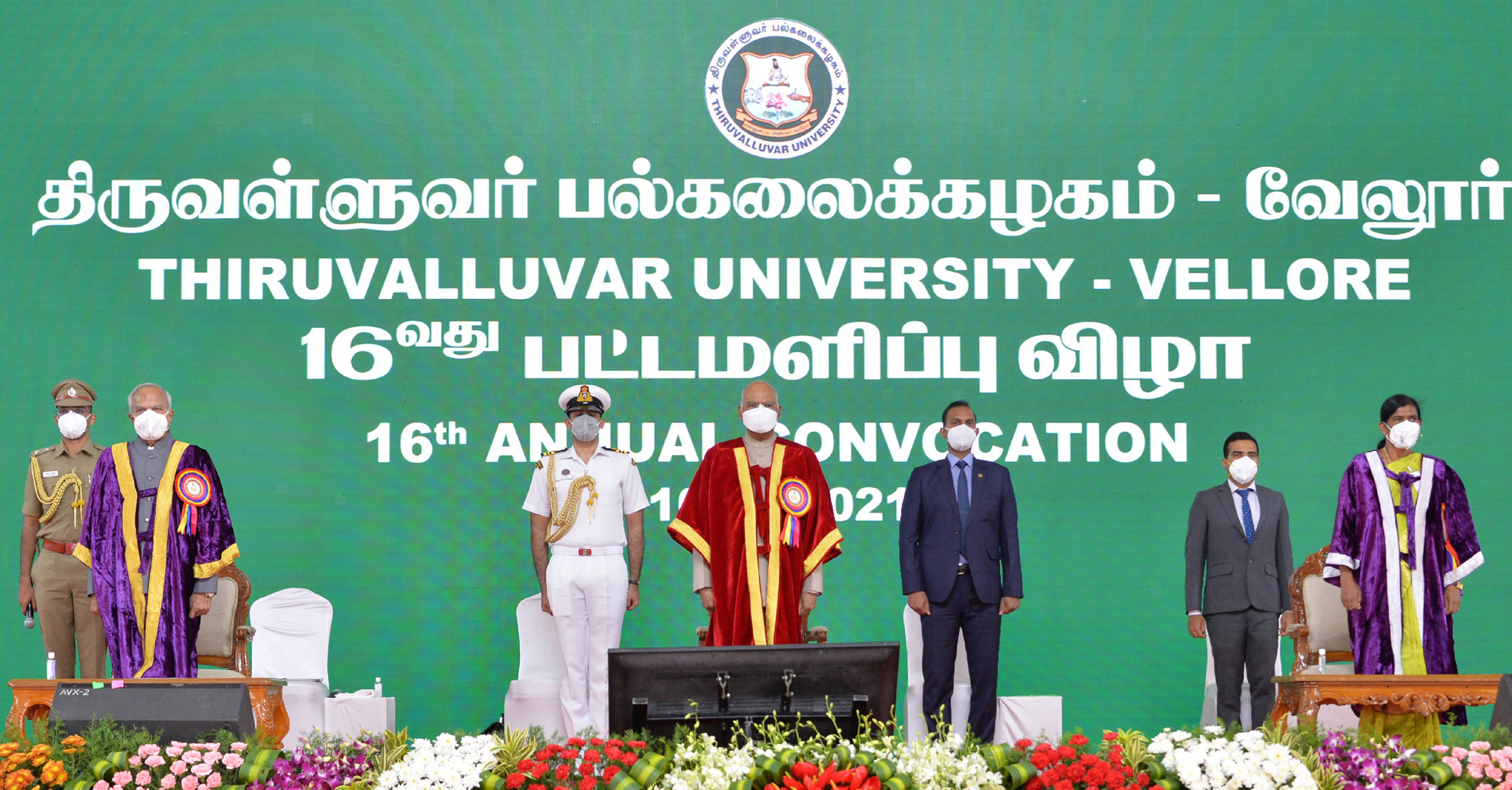VELLORE, (TN): The National Education Policy (NEP) 2020 is a well-planned and decisive step towards recovering India’s legacy of rich education system described by Mahatma Gandhi as a “beautiful tree” that was felled by what the British rulers called reforms, President Ram Nath Kovind said on Wednesday.
Prior to the British rule, India had a rich system of education which Mahatma Gandhi described as a beautiful tree and one “that was cut down by what the British rulers called reforms,” he said in his address at the 16th convocation of Thiruvalluvar University here
“We are yet to fully recover from those drastic changes and recover our legacy. The National Education Policy 2020 is a well-planned and decisive step in that direction. It has a holistic vision of transforming the way children and youth will be educated to make learning a part of personal development while also serving the needs of society,” he said.
The President said the policy brought together the best of the country’s ancient heritage and the best of modern learning.
“It gives emphasis on moral education and awareness of Indian culture. A student coming out of such a system will have a higher degree of self-confidence and will also be better equipped to meet the challenges of the future,” Kovind added.
The new policy also takes into account what is needed to build a prosperous and self-reliant nation.
“For this, the higher education system must enable equity, expertise and empowerment. The National Education Policy seeks to achieve these objectives. As (Nobel Laureate) Sir C V Raman had put it, higher education institutions should lead the nation towards knowledge expansion and economic growth. That precisely is the thrust of the new policy,” the President said.
It was a matter of great satisfaction that India’s higher education system has expanded to reach out to serve the rural and marginalised sections, he said, adding, it has thus become the third largest education system in the world.
However, there was no room for complacency, and the country has to catch up for the lost time if it aspired to scale greater heights, he noted.
Recalling that the varsity was named after “one of the greatest saint-poets and thinkers,” Thiruvalluvar, Kovind said the former was revered for his eternal messages for the welfare of entire humanity.
“Let us salute the memory of Thiruvalluvar. Let us also resolve to imbibe his noble teachings. Let his kurals (couplets) be integral parts of your education and life,” he said.
Vellore was also witness to “one of the first challenges to the might of the East India Company,” he said referring to the Sepoy uprising of 1806 here, adding it was one of the precursors to the country’s Independence movement.
Kovind said he found himself “connected” to the great tradition of excellence achieved in Tamil Nadu whenever he visited the state and hailed the engineering marvel of Grand Anicut constructed by the Cholas.
The dam constructed across Cauvery river in Thanjavur, “is a testimony to the engineering excellence in our society during those ancient times,” he added.
“Knowledge and scientific temper appear to be intrinsic traits of people in this region. That is why great mathematicians and scientists like S Ramanujan, the Nobel Laureates C V Raman and S Chandrashekhar came from this region. The list of luminaries from this region is endless,” he added.
Highlighting the high number of women achievers among the graduates on Wednesday, Kovind said “this reflects bright future of India.”
“When the women of our country are educated, it not only secures their own future but also of the entire country,” the President said.
Kovind told the graduating students that the country was in a ‘unique position’ to offer crucial lessons to the world on how to live together peacefully and nurture nature.
“As India achieves more economic growth and more equity, the world is eagerly turning to us to learn more. Each of you has the capacity to write the next chapter in this India saga,” he said. (AGENCIES)


